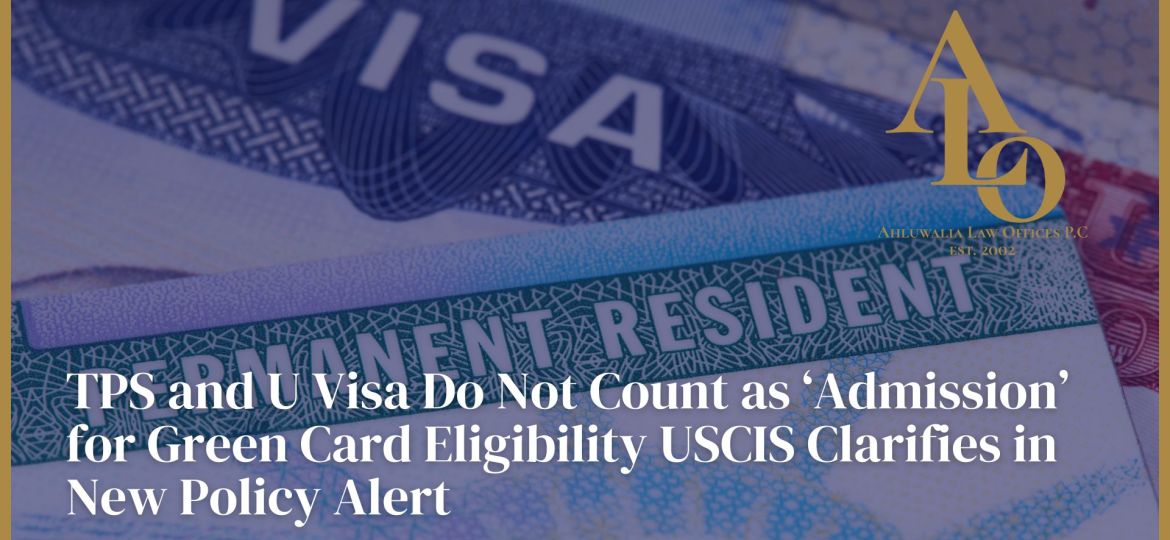
On November 3, 2025, U.S. Citizenship and Immigration Services (USCIS) released a Policy Alert (PA-2025-25) confirming that a grant of U nonimmigrant status or Temporary Protected Status (TPS) does not constitute an “admission” under Section 245(a) of the Immigration and Nationality Act (INA). This clarification aligns USCIS policy with the U.S. Supreme Court’s ruling in Sanchez v. Mayorkas, 141 S.Ct. 1809 (2021), which drew a clear distinction between “nonimmigrant status” and “admission” into the United States.
What the Supreme Court Decided in Sanchez v. Mayorkas
In 2021, the Supreme Court ruled that a grant of Temporary Protected Status (TPS) does not equate to an admission or lawful entry into the United States for adjustment purposes under INA 245(a). The Court specifically noted that aliens granted U nonimmigrant status—similar to TPS holders—can receive such status while physically present in the U.S. without being considered admitted.
This finding has since shaped how USCIS interprets eligibility for adjustment of status, leading to the current policy update that explicitly incorporates these distinctions into the USCIS Policy Manual, Volume 7, Part B.
What the New USCIS Policy Clarifies
The updated USCIS policy guidance now states that:
- A grant of U nonimmigrant status in the United States does not satisfy the “inspected and admitted” requirement under INA 245(a).
- Similarly, TPS does not constitute an admission for purposes of adjustment of status under the same section.
- However, U visa holders who were inspected and admitted at a U.S. port of entry with a valid visa remain eligible to adjust under INA 245(a) if they meet all other criteria.
- U visa holders who obtained status while inside the U.S. may still seek permanent residence under INA 245(m), a separate adjustment pathway designed specifically for qualifying U nonimmigrants.
USCIS notes that this clarification resolves prior inconsistencies in adjudications, where some applicants assumed that receiving U status or TPS in the U.S. fulfilled the lawful entry requirement.
Why This Matters for U Visa and TPS Holders
This policy change carries significant implications for those seeking permanent residency:
- Not All Entries Are Admissions:
Individuals granted U or TPS status inside the United States cannot rely on those grants alone to meet the “admission” requirement under INA 245(a). - Separate Adjustment Pathways Exist:
- U visa holders must use INA 245(m) for adjustment, not 245(a).
- TPS holders may qualify for adjustment only if they separately satisfy the “admission” requirement—such as by entering lawfully on another visa.
- Consistency in Adjudication:
USCIS’s updated manual ensures uniform adjudication going forward and brings agency practice into alignment with the Supreme Court’s statutory interpretation.
Key Takeaway
For both U visa recipients and TPS beneficiaries, this policy underscores the importance of determining your initial manner of entry before filing for adjustment of status. A prior lawful admission, parole, or inspection is still required under INA 245(a) unless you qualify for a specific exemption such as INA 245(m).

